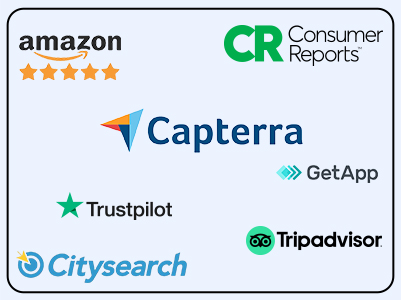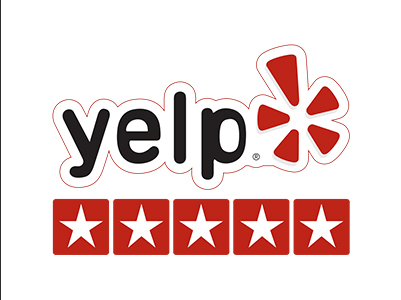The Definitive Guide to Online Reputation Management | Vicinus.ai
“It takes twenty years to build a reputation and just five minutes to ruin it. Remember that, and you’ll do things differently”. These wise words by Warren Buffet capture the essence of managing your business’s reputation – be it online or offline online reputation management. Think about it! When was the last time you picked a new restaurant without reading its review on Google? And, reading reviews before trying out a product or service is not restricted to dining and entertainment alone. Buyers heavily rely on what others are saying about your brand online all the time. In fact, a whopping 93% of customers read reviews on the internet before making a purchase.This is a considerable number to fathom, but it makes two things clear –
- Online reviews can be a make or break for your business
- You need an Online Reputation Management (ORM) blueprint
What is Online Reputation Management (ORM)?
 ORM is all about setting a positive online narrative around your brand. This way, you represent your business fairly for prospects who are looking to purchase your offerings. In no way is ORM about planting reviews
or paying for implicit publicity.
To begin setting a narrative, you must first proactively monitor what is being said about your brand across the digital spectrum. Pay close attention to negative reviews
more than the positive ones and react to them empathetically and publicly.
ORM is all about setting a positive online narrative around your brand. This way, you represent your business fairly for prospects who are looking to purchase your offerings. In no way is ORM about planting reviews
or paying for implicit publicity.
To begin setting a narrative, you must first proactively monitor what is being said about your brand across the digital spectrum. Pay close attention to negative reviews
more than the positive ones and react to them empathetically and publicly.
Why Does Your Online Reputation Management Matter?
 Believe it or not, your online reputation is everything today! Think of the online reviewing of brands as digital word-of-mouth marketing, turning prospects either towards you or against you. Here is a comprehensive overview of why your online reputation matters and why reputation management
is critical.
Believe it or not, your online reputation is everything today! Think of the online reviewing of brands as digital word-of-mouth marketing, turning prospects either towards you or against you. Here is a comprehensive overview of why your online reputation matters and why reputation management
is critical.
It Influences Buying Decisions
It’s obvious, isn’t it! Online reviews carry the total of personal brand experiences of customers bound to influence your prospects’ purchasing decision. Moreover, reviews act as a significant differentiator between you and your competitors. It’s not unusual for prospects to choose one brand over another simply because one is reviewed slightly better than the other on one portal. Reviews also play a significant role in shifting age-old brand loyalties.Online Reputation Management Allows You to Earn Your Customers’ Trust and Loyalty
Sure, your prospects want to build trust before purchasing from you, and reviews are a great way to get there. Honest online star ratings weighted further by subjective views display transparency and helps customers trust your brand. To further boost loyalty, you must understand the value of negative reviews
and make sure not to take them down. In fact, a few negative reviews only show that you don’t have anything to hide.
It Can Influence Organizations Who Want to Invest in Your Business
It’s worth mentioning that if your business wishes to expand, it will seek investors. You will perhaps go public with your business. In such a case, your brand’s online perception will carry massive weight in letting investors decide whether they want to take a chance on you or not. Simply put, manage your online reputation well and create a standing among your future investors.Who Failed at Online Reputation Management?
It helps to study failures more than applauding successes. And, there are a couple of biggies out there who failed at online reputation management . It’s time to live and learn from them:Nestle
Here is a dinosaur brand – one that has been around for decades. You would not expect their name to feature here. But, unfortunately, they failed at review management and landed on our list. So, what happened? With a rising social consciousness around sustainability, Nestlé received several negative reviews about their questionable environmental practices, which they chose to ignore. They expected angry customers would pipe down, and the whole matter will blow right past them. The truth is far from it! Negative reviewers became more aggressive with trolling and posting the inverted logo of the brand. Long story short, this episode created an uproar strong enough for the company to shut its public page. Moral of the story: Do not turn a blind eye to negative reviews. Acknowledge their opinions and respond to criticism promptly.Use Case of Dark Horse
Here is another brand failing spectacularly at online review management. This café received a Tweet highlighting their lack of plug points for laptops. A fair request – countless remote workers, sit at coffee houses and work. Now the Dark Horse Café did not shy away from responding with a Tweet that went something like, “We are in the coffee business and not official business, and we have plenty of outlets to do what we need.” Such a sarcastic response did not bode well with the readers, possibly creating a negative perception of the brand. What’s more, this incident also got them widely distributed lousy publicity when several blogs reported this incident as a case study for negative public relations.
The Top Two Content Types that Hurt Your Brand’s Online Reputation Management
The top two review sources that can hurt your brand are:Negative Social Media Feedback
Your customers constantly review you on various social media portals like Facebook, Instagram, Pinterest, and many others. Indeed, it is a great virtual location to engage with them. Primarily because everything you do is in the public purview. So, if you receive a negative review on, say, your Facebook page, ensure a speedy resolution. No brand wants a negative review. Unfortunately, they are inevitable, but if manag ed correctly – replying and resolving customer grievances publicly – they don’t tarnish your brand’s reputation permanently.Bad Media Publicity
Nasty or negative media coverage is what Neil Patel defines as an “online reputation bomb.” Bad press, unfortunately, shows up in search engine results. If you have repeatedly received bad media publicity, prospects searching you will likely find defamatory content about your brand. Add to the issues related to bad press, sometimes, fake reviews and hate sites also do significant damage to your brand’s online reputation. This is why you must keep an eye out for fake trolling and bad media coverage. Identifying honest reviews from dishonest ones can help you set the correct narrative around your brand.5 Best Practices for Online Reputation Management
From figuring out what ORM is to learning about ORM failures – it’s time to take this discussion forward and know how you can ensure that you get good Google reviews . Here are the best practices to monitor and manage your brand reputation online.
-
Invest in a Reputation Management Software
-
Update All Your Digital Handles Regularly
-
Encourage Your Happy Customers to Leave Reviews
-
Acknowledge and Respond to Negative and Positive Reviews
-
Don’t Switch Channels While Resolving an Issue
A Quick Recap
First impressions are critical, but they are certainly not the last. Bear in mind that you always have the chance to manage what people are saying about you online by preparing an ORM strategy that includes the best practices listed above. Here is a quick recap for them:- Invest in a Reputation Management Software
- Update All Your Digital Handles Regularly
- Encourage Your Happy Customers to Leave Reviews
- Acknowledge and Respond to Negative and Positive Reviews
- Don’t Switch Channels While Resolving an Issue
And, It’s a Wrap!
Whether you like it or not, whether you have a digital presence or not, your customers are talking about you online. That’s just how things are today! And, not only are they talking about your product or service, but they are also vlogging about it. They are putting up reviews, unboxing videos, and all sorts of stuff about your product. So, it only makes sense that you tap into the action and be a part of your brand’s online narrative building. After all, that is the first step towards managing your business’s reputation online.








